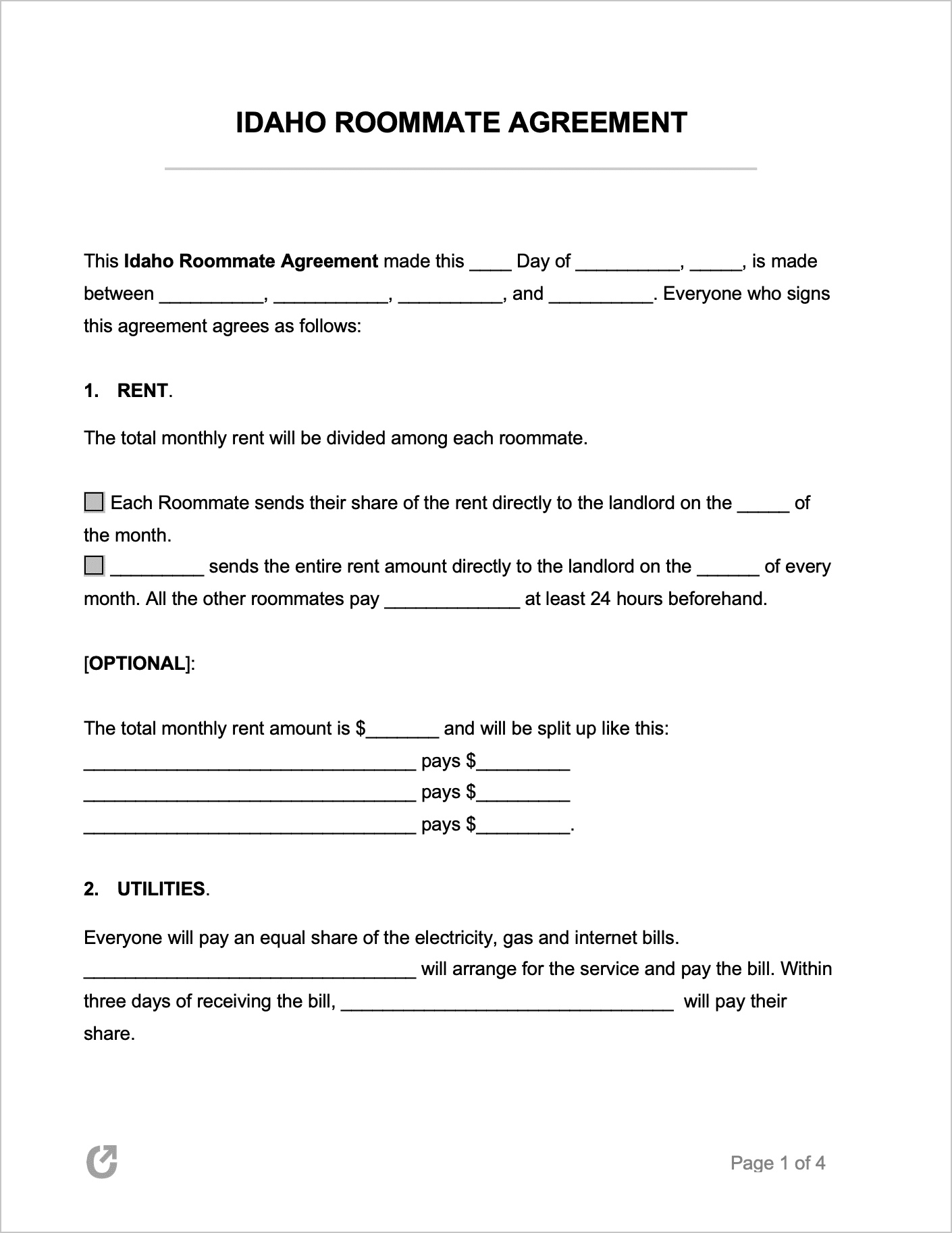Idaho Roommate Agreement
The Idaho Roommate Agreement is a legal document used for establishing clear expectations among roommates when moving into a shared apartment or house. This agreement aids in preventing conflicts and implementing a systematic approach to handling utility bill payments and property maintenance.
It is important to note that this agreement exists solely between the tenants, serving as a supplementary document to the lease agreement, which is a legally binding contract between the tenant(s) and the landlord.
Tips for Drafting a Roommate Agreement
- Clear communication: Ensure all roommates openly discuss their preferences, expectations, and concerns when drafting the agreement to avoid misunderstandings and future disputes.
- Include important details: Clearly outline financial responsibilities, such as rent, utility payments, and security deposits, as well as household duties, guest policies, quiet hours, and any other relevant rules.
- Keep it fair: Strive for a balanced distribution of responsibilities and expenses among roommates, taking into account individual needs and preferences.
- Review local laws: Familiarize yourself with relevant landlord-tenant laws in your jurisdiction to ensure the agreement complies with legal requirements and is enforceable.
- Signature and copies: Have all roommates sign and date the agreement, and provide each party with a copy for future reference.
- Flexibility and amendments: Be open to revisiting the agreement periodically or when significant changes occur, such as the arrival of a new roommate, to maintain fairness and accommodate evolving needs.
- Dispute resolution: Specify a process for resolving conflicts, such as mediation or arbitration, to address potential disagreements constructively.
- Termination and renewal: Include provisions for terminating or renewing the agreement, considering the terms of the original lease and any applicable laws.
- Documentation: Retain a copy of the signed agreement in a safe and easily accessible location. Consider providing a copy to the landlord for their records, even though their involvement is not required.
- Legal advice: If you are uncertain about specific aspects of the agreement, consider consulting with a legal professional to guide and ensure the document’s enforceability.
